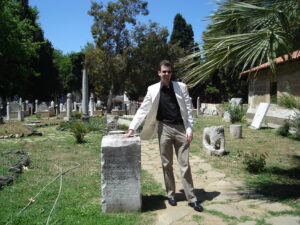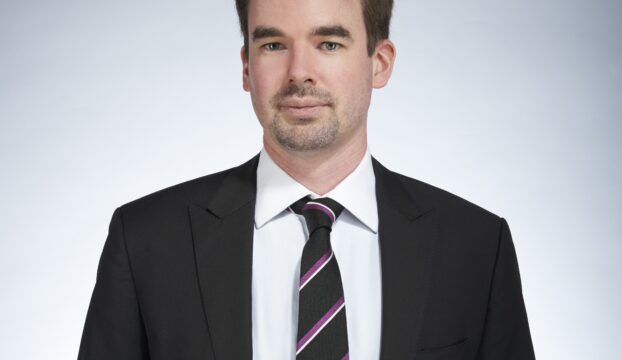Sebastian Moll’s path has never been conventional. Following studies in Bonn and Lausanne, he first came to Edinburgh for an MTh (2005) on the second century heretic Marcion. “I actually handed in my Master’s thesis in the form of a play, Meet Marcion. I was drawn to him because he was a controversial and prominent figure in his day, and there was no up-to-date scholarship on him.” Funded by the Arts and Humanities Research Council, he then wrote a PhD (2009) on the same figure. An academic career soon opened up, first at the University of Mainz, and then in the Evangelische Akademie in Bingen am Rhein. Today, though, Moll works as culture editor for Die Tagespost—a weekly Catholic newspaper. How did his path wind from ancient Christianity to cultural journalism?
“In my years as an academic, I’d also been writing freelance on cultural affairs for the paper. It just so happened that the culture editor retired, and I was asked if I was interested in the job. I had no formal training in journalism, although I’d been writing for many years in both the academy and at a popular level. Even when I was in the academy, I liked writing in a way that people could understand, and that could reach a wide readership.

“I love my job. I write an article each week, and work with other writers. We review cultural events and discuss cultural questions. I get to meet and interview interesting people, and write about things that fascinate me. At the moment, I’m writing a series of articles on sermons in novels, starting with Moby Dick, and covering a lot of other literature. To do that kind of journalism, you need to know your theology. The same is true across modern culture in general. Religion influences culture deeply. For a newspaper like mine, it helps to have journalists who have a high level of religious literacy.
“Edinburgh is my happy place. Whether I was in Rainy Hall, playing in the New College basketball team, or doing detective work in the library, I always felt like part of a community. I loved going down into the library stacks and hunting for clues, evidence, and texts. I miss that. I could talk to faculty about scholarship, but also normal life. They were the best years of my life.”



